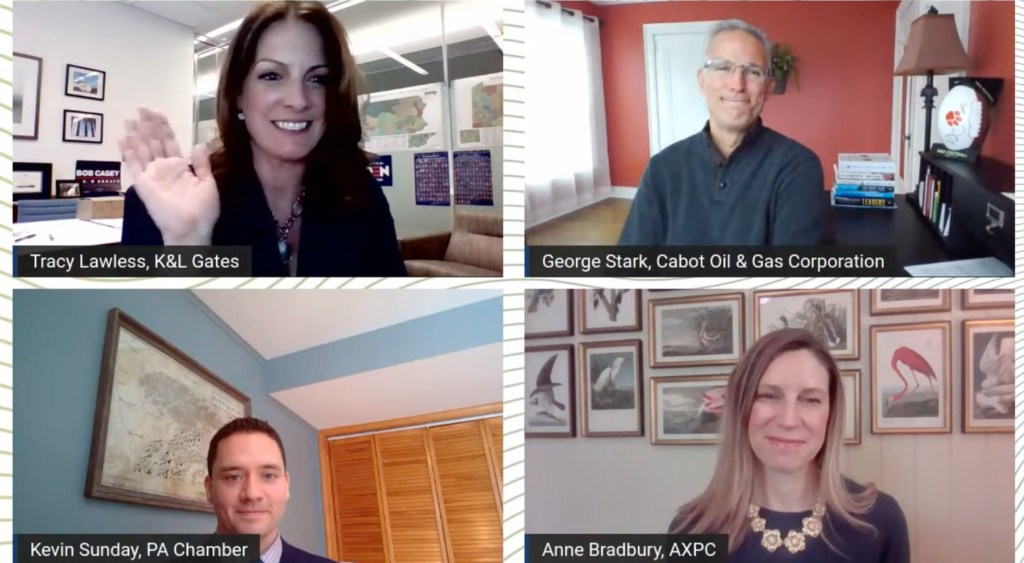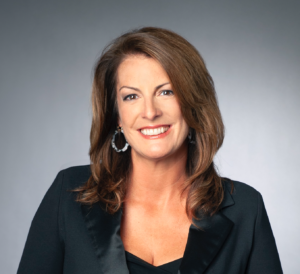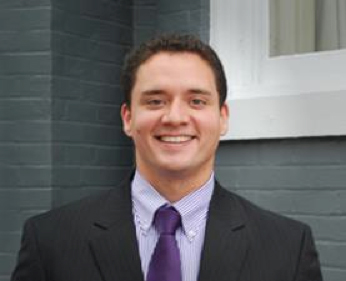Focusing on the Intersection of Politics and Energy Policy

For our first Think About Energy (TAE) presentation of 2021, we made some improvements based on your feedback from last year. The biggest changes are a move to YouTube and a new time. We will continue to provide the same serious content that offers an overview of what’s happening in the energy sector so we can have these debates.
On Feb. 18, we brought together Anne Bradbury, CEO at AXPC (American Exploration & Production Council); Kevin Sunday, Director of Government Affairs at the Pennsylvania Chamber of Business and Industry; and Tracy Lawless, Government Affairs Advisor at K&L Gates. They helped us understand changing energy policies during the first 100 days of President Joe Biden’s administration from a federal and state perspective, as well as from a legal aspect.
A common thread is that we all need more education so we can discern among the policies that come down the pike. Yes, there have been changes as to who will be making policy decisions. But implementation may not be as swift as we anticipated, which will provide opportunities for those of us in the energy sector to take a seat at the table and help shape common sense legislation. When it’s time to advocate, we’ll have the information we need.

“We know that fossil fuels are here to stay. Things like carbon capture utilization, sequestration, and blue hydrogen show great promise for both making a real impact on emissions and supporting good- paying jobs all while maintaining our quality of life,” Anne put forward. While the Biden team holds a majority in the House and Senate, the margin is slim. “You will see a pretty active and engaged legislative agenda, particularly for the first half of the year. But it will not be able to be as aggressive and ambitious as the Biden administration would like it to be.”

Tracy reminded us that “we need vocal allies, particularly from some different voices outside the gas industry to be our best advocates.” Often, that comes in the form of labor, she noted, but also at the local level with county officials, mayors, and state representatives. “Where we see our messages resonate is when we see communities that are able to speak very personally to the impact of gas operations on their communities and their families. That really goes a long way in Washington.”

Kevin cautions that the number of newly elected members of the Pennsylvania legislature might already have forgotten Act 13, which modernized the state’s approach to regulating oil and gas drilling and municipal land use. Through impact fees, more than $2 billion has been collected since 2013 for conservation, infrastructure, and parks and recreation for all 67 counties. “They might not know why we deregulated the electricity markets 25 years ago under Gov. Ridge, and how that has resulted in much cleaner, cheaper energy and a more secure grid,” Kevin noted. “Pennsylvania is the powerhouse electricity generator in the 13-state PJM grid, exporting more power than anybody in that system that goes from the Atlantic Ocean to Chicago. We’ve built on these strengths.”
Echoing Tracy’s comments, Kevin is most optimistic about the varied composition of the current Pennsylvania legislature and believes that the diversity makes it more approachable.
“Contrary to DC, we have some lawyers in the House and Senate, but we also have insurance salesmen, some teachers, nurses, and small businessmen. It’s really a body that looks like the state,” Kevin remarked. “We’re rallying around a recovery agenda to come out of this pandemics stronger than ever, and we’ve got to look to the private sector to lead.”
“If we can have those discussions, then we can start advocating for those projects,” Tracy stated. “In order to connect the dots, you have to lay out the dots first.”
“We’re going to look for opportunities to work together on a shared goal of reducing emissions while continuing domestic production of oil and gas,” Anne maintained. “Where regulation is overly aggressive or restrictive, we will oppose them. But we would like to go in with a constructive approach and work with them where we can.”
